The practice of history requires professional skills. Historians are trained to research and critically assess evidence and events of the past, taking into account the broader political, economic, social and cultural context. Professional historians also learn to communicate their research in accessible and evocative ways to a wide audience.
The process of producing an accurate, thorough and lively history is time-consuming and complex. That is why a professional historian who has the requisite skills and experience is best able to identify, collect and interpret research materials, obtain oral history and audio-visual resources, and produce an engaging product.
Professional historians are adept at preparing material for specific audiences. History may be presented in the form of a book, a report, promotional material, a display, an exhibition, a collection of oral histories, a heritage guide, a website or a digital history. Professional historians can advise on an appropriate format in accordance with the allocated budget and the intended audience.
The historian’s basic professional qualification is an Honours degree or equivalent in the discipline of history from a recognised tertiary institution. Many professional historians hold additional postgraduate qualifications.
To become a member of Professional Historians Australia these credentials must be recognised under the National Standards for Accreditation for Membership of Professional Historians in Australia. Some professional historians also have qualifications in related fields such as archive and museum management and publishing (editing and indexing).
Professional historians work in a wide variety of fields, including education, government, museums, media, legal research and heritage. Some write organisational histories (for schools, companies and interest groups) and local histories. Others are independent consultants available to carry out commissions for historical research and writing as well as provide advice to allied professionals like archaeologists, archivists, architects, town planners and valuers. Historians may even be employed by agencies or private organisations.

